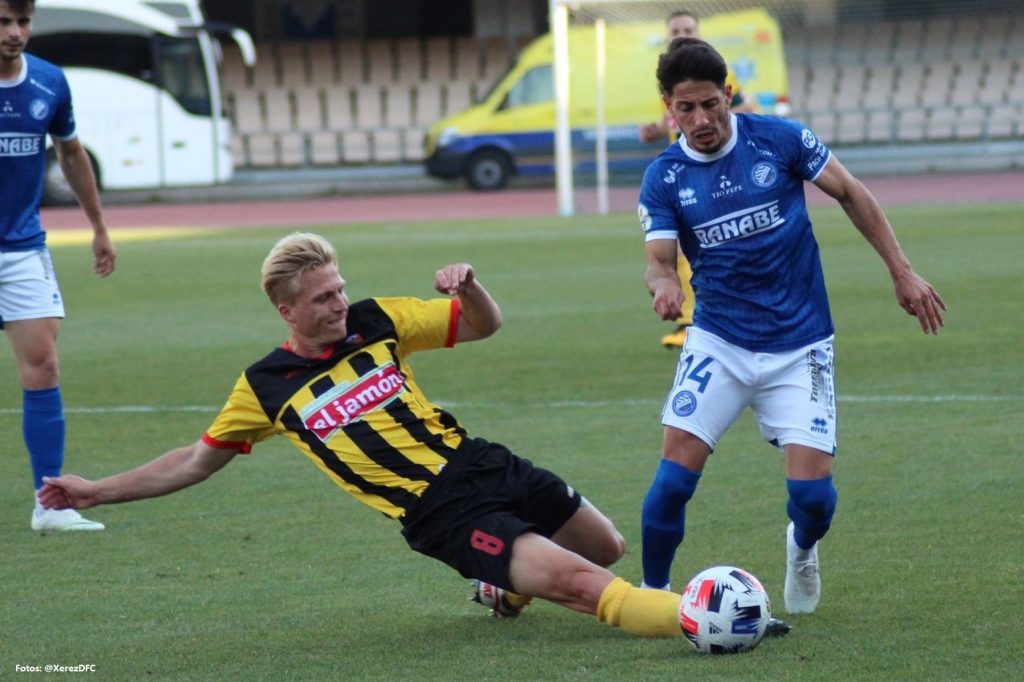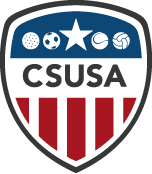Life as a college soccer athlete – being drafted into the MLS with Joel Rydstrand
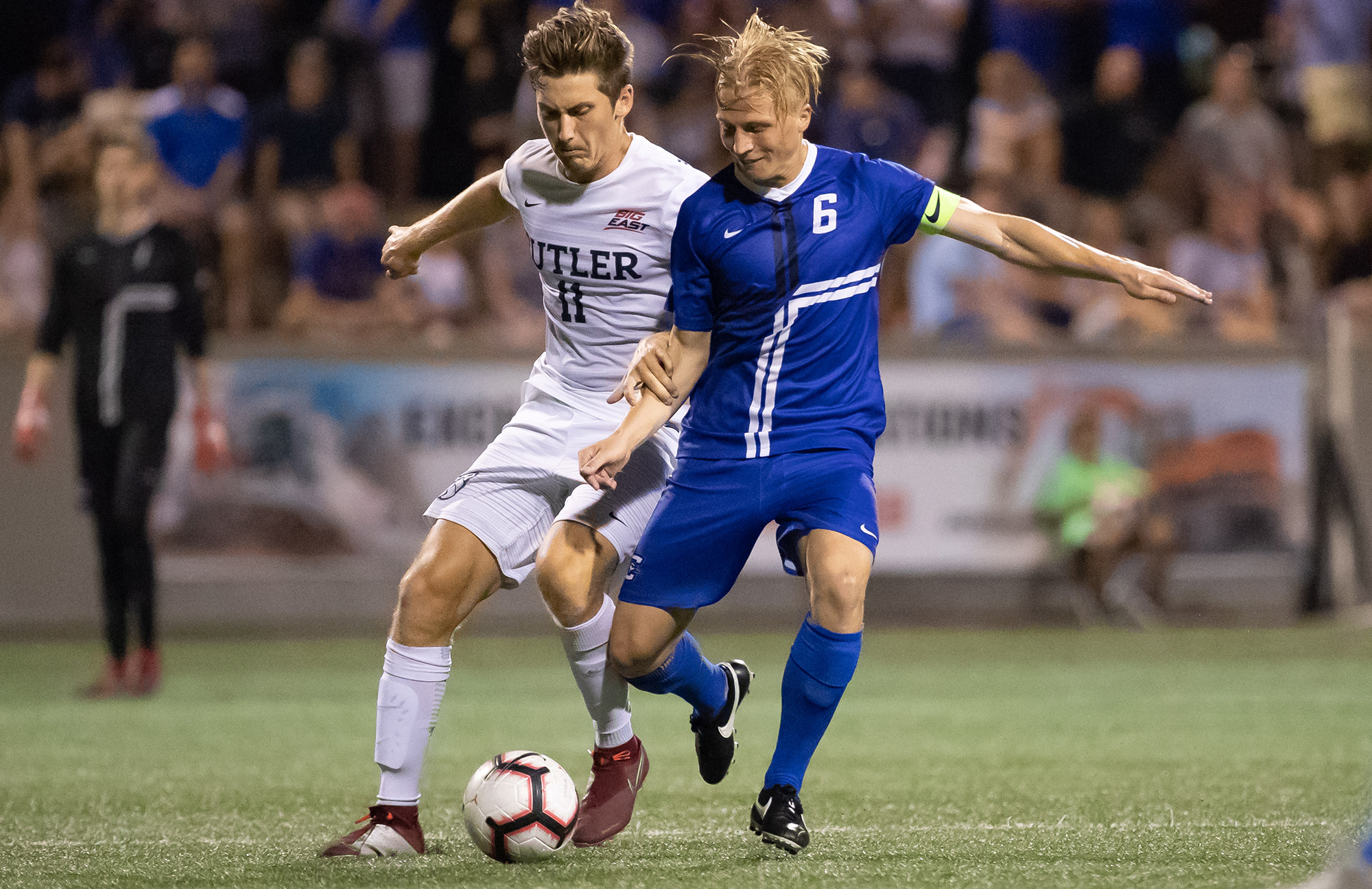
Joel Rystrand, from Sweden, currently playing soccer in Spain, thank you for stopping by and talking to us today.
Thank you for having me.
You played at a high level in Sweden so why did you choose to go to the US in the first place?
In the lead-up to leaving Sweden for the USA in 2014 I was contracted to IK Sirius in the second division in Sweden and I didn’t play at all. In the summer it got me thinking about trying something new to get my feeling for the game back. I started by going on loan to a team within the fourth division in Sweden where I played the second half of the season which is where I first got in contact with Carl at College Scholarships USA. As we started to look at teams and discuss when I could go to the USA, it seemed it was something I wanted to do. Pretty quickly leading up to the fall I felt like this is what I what to do. Let’s do it. It felt like something new and something exciting. At the time there were not many Swedes who had done it before. I said why not and in January I ended up leaving.
Most soccer athletes tend to start in the Fall semester, but you decided to go in January time. Is it something you would recommend?
For anyone that is considering going to the US in January I would say do it! It gives you the right amount of time to figure out the studies as well as getting to know your teammates while working on your language. A lot gets thrown at you at once when you arrive, so the first semester gives you time to adapt and when the season comes around you already feel like you know what you are doing. If anyone has the possibility to go in January I would say go for it.
As you mentioned you played a high level in Sweden beforehand so how did you decide to commit to Creighton University?
I was looking at the NCAA ranking at the time and Creighton was about 20th. I was also in contact with some other schools which were ranked higher but it wasn’t until Creighton said they were going to send someone over to watch my game in Sweden that I took it seriously. It was the effort they put in to recruit me that stood out and made me say what else can I ask for. This is the top of the top so that’s why I went with Creighton.
What did you initially think about the facilities you would have access to as a student-athlete?
Unbelievable. They have resources not many clubs in the world have. I had seen some pictures and virtual tours of the school before. When you get there and you see hot baths, ice baths, a treadmill under the pool, a gym like no other and Creighton has a nice stadium and top-notch locker room. It makes it a lot of fun.
How is the transition from college to professional sports?
Once you move out of college and into professional football these are things people take for granted. Not every team at a professional team has access to this. It is very fortunate to have these facilities for the years you play at college.
How would you compare your team in Sweden to your team at Creighton?
Definitely different. The college game keeps the tempo all the time while in other places in the world the game has a rhythm. It takes a lot of good physical conditions to do well in the college game however the individual quality is still higher in the Swedish second division.
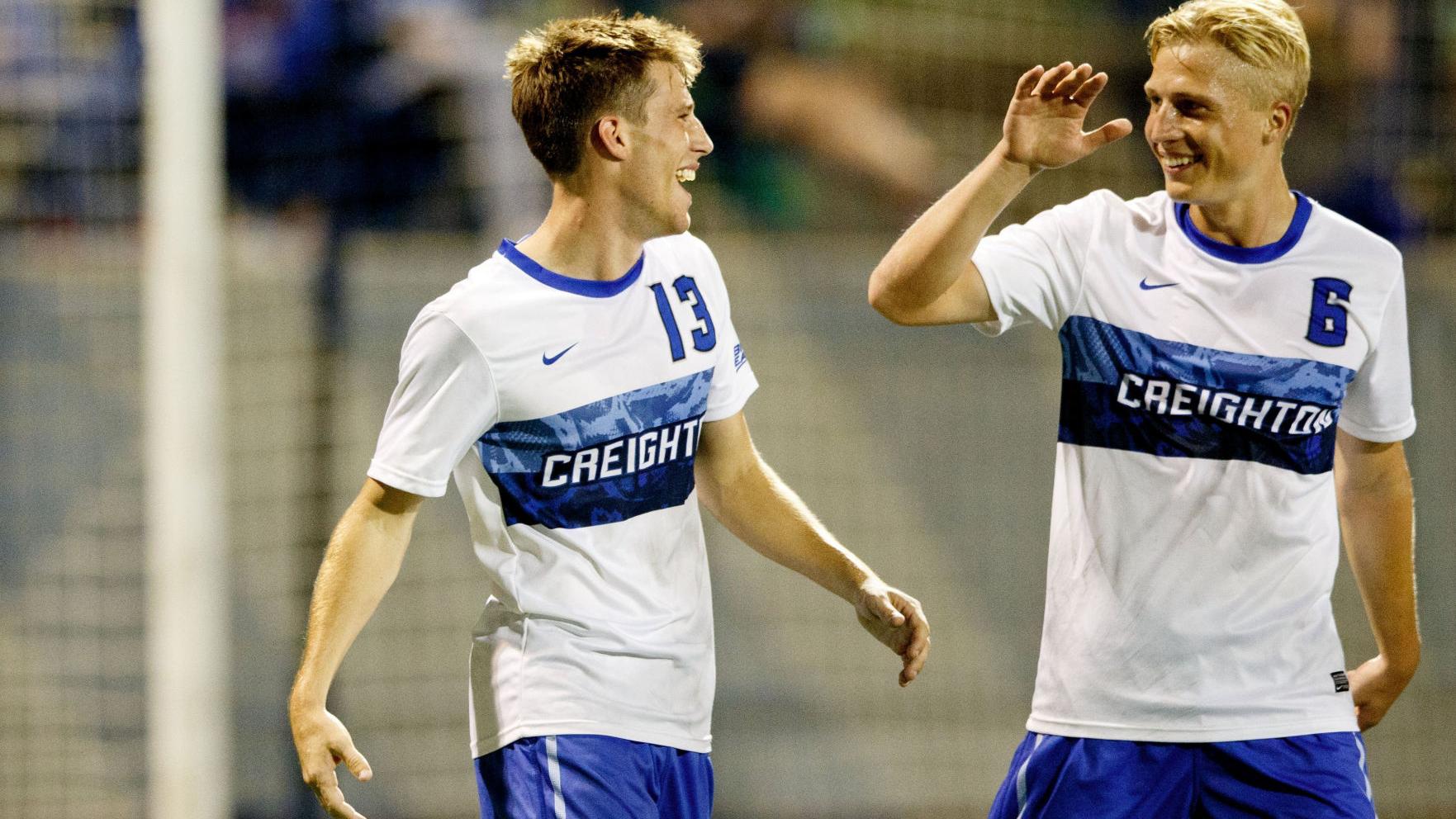
You played more than 80 games in your college career which is an amazing statistic to have. You also recorded no injuries during that timeframe. Why do you think that is?
It is thanks to the resources you have over there and the support. I was able to look at myself and see what I hadn’t done well in the past and what I need to do to take care of my body more. I needed to do more strengthening work as I was not very physical when I arrived in the US. They have the resources and facilities so I had everything I needed, so to improve physically it was up to me.
You had a great start to your college career where you were named in the All-Freshman Team in the Big East. Out of the newcomers in that league, you were ranked in the top 11. How did it feel to be ranked so high?
We had a really good team that year and it helped to go in the spring as the team was able to stay together. A lot of the freshmen who were very talented came in the Fall had a hard time adapting and finding their own place. We had a really good team and I effectively found my role in that team and had the support from the coach which allowed me to play every single game.
Your career continued to progress year upon year. How did you get from being part of the best newcomers to suddenly in your fourth year being named ‘Midfielder of the year ‘in the Big East Conference?
It was not a straight journey at all. We went on a losing streak after my sophomore year and in my junior year we had one of the worst defences in the universities’ history and we did not go to the NCAA tournament. That switched it for us, myself and the other captain decided it can’t happen again. We looked at ourselves and really took on the team as captains. We put down a lot of work with the coaches on how we would play, tactics, all the way into the weight room. It was a journey we went on together and we worked hard to get there. I think that is a reason why I could do so well and flourish in my last season to win those awards.
Many international students get named as a captain. Do you think there is a reason why this happens?
We, as internationals tend to arrive a little older than Americans which means we are a little more mature and ready for the game both as a person and a player. I believe this is why many internationals tend to be a captain as they have a little more maturity.
Do you find there is a difference between American soccer players and international soccer players?
The Americans have different qualities. They are usually more physical and faster. If you have more Americans on your team you may see teams that play more counter-attack football.
You talked previously about your freshman season being one of the highlights of your career where you made the NCAA quarterfinals. What was your highlight or best memory?
We had an incredible team and we had Fabian Herbers who plays at Chicago Fire FC who scored 15 goals and 17 assists. We had a lot of great players who went on to play professionally as well. Unfortunately, we lost in the quarter-finals, but I would say it was my best football memory.
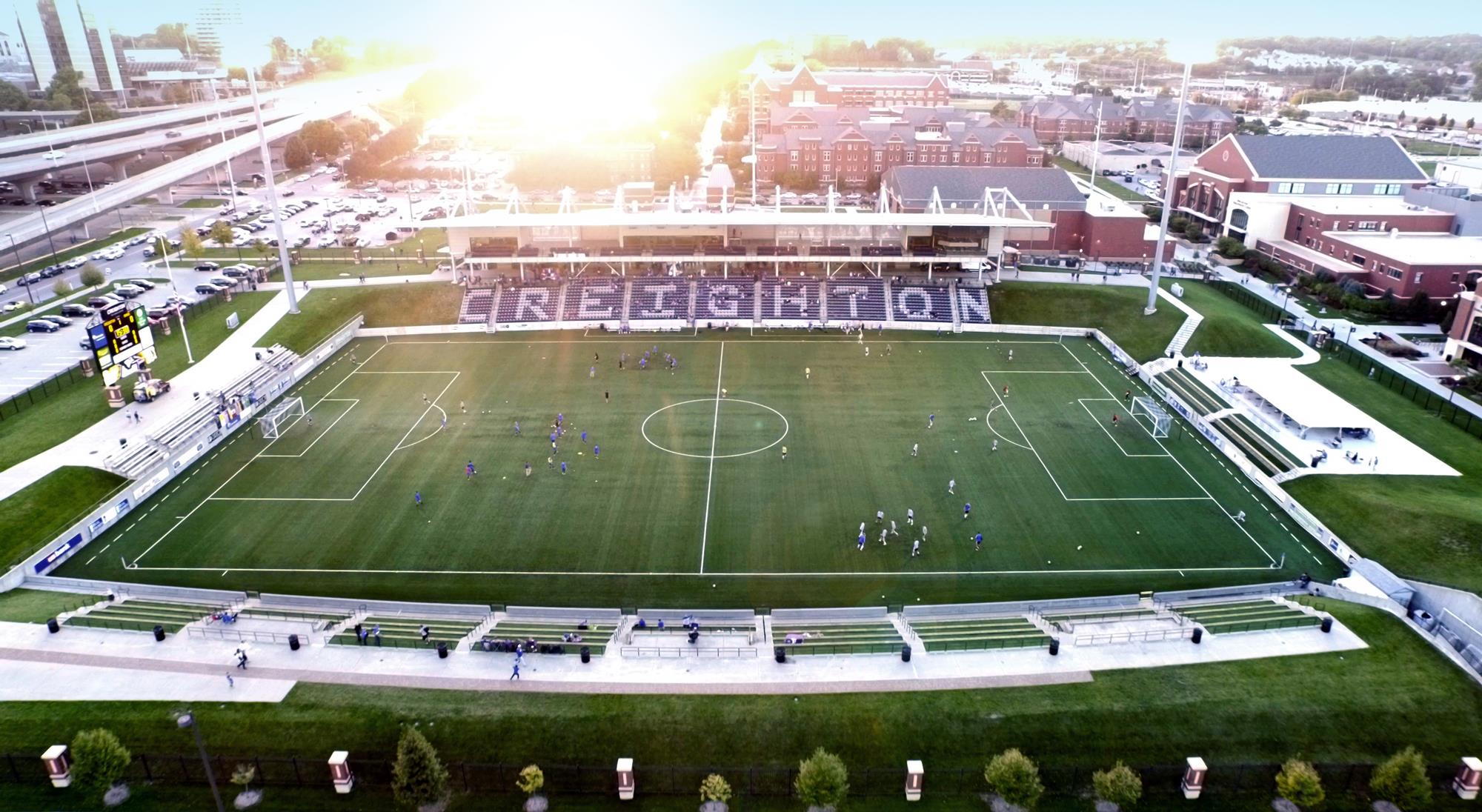
You had a fantastic career at Creighton University in Nebraska which isn’t a typical state many choose to go to in the United States. Where is Omaha, Nebraska and what was the climate like?
It is right in the middle of America. Just north of Kansas and in terms of the climate it is similar to Sweden or Norway but slightly more extreme. It gets really hot in the summer and really cold in the winter. As a city, I love Omaha, I actually miss Omaha a lot.
Did it take a while to get to know the area?
It takes some years to get to know the city. The first few months I could not find many positives with the city but as you get people and they show you around you get to know a lot of good spots. I do actually miss it.
When looking for a university some people get caught up in always having things to do. Naturally, Nebraska doesn’t sound like a state to do this, but what are your thoughts on this?
I don’t think that should be the fear of anyone that they will run out of things at university as there is a lot to do.
Do you remember how many people are within the city?
I don’t want to say exactly but I would say around 200,000 to 300,000 people in the inner area.
You played a lot of soccer alongside your studies but did you get to have fun and visit any other places?
Throughout my four years, we had a lot of good memories. In the spring and summer, there are a lot of opportunities to see places. I have been to Vale in Colorado with friends, I have been to Florida on spring break and I lived in Oregon for two summers and played PDL over there. Oregon is an amazing place. If we played away games in New York we were able to see some tourist things as well like times square. If you try, you definitely get to see the country no matter where you are.
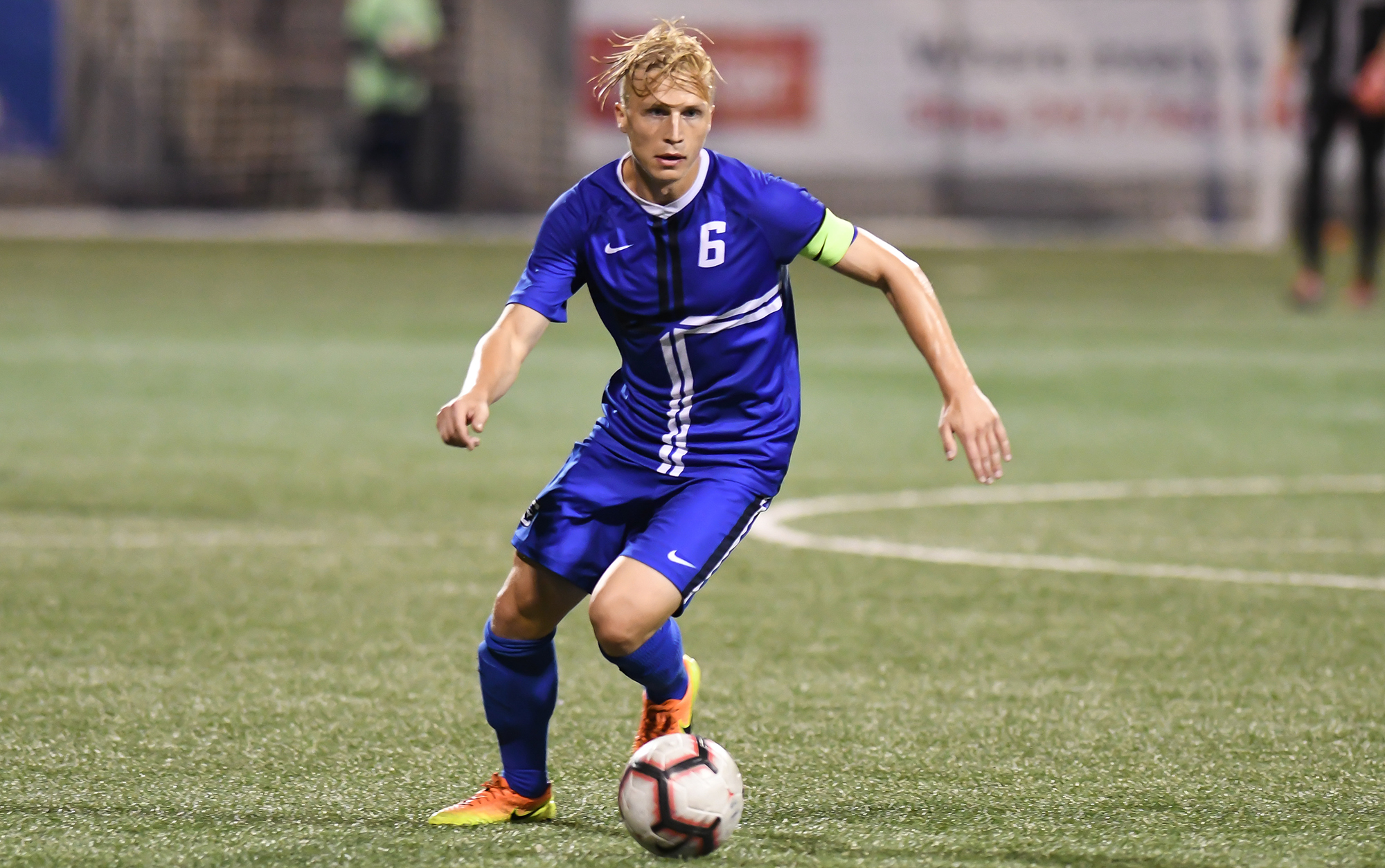
After you graduated you were invited to the MLS Combine which is a showcase where the best college players get to play in front of the MLS coaches. How was the combine?
It was a very good set-up and a good experience. It is hard to enjoy it as it is stressful with coaches being everywhere. You have interviews every day and is a lot to go through in a short amount of time. You then have two games to showcase who you are. It is a lot to take in, and I think there are more effective ways to pick out the best players than a showcase but it was a really fun experience to meet other college players and be there for 5-6 days.
After Christmas, the MLS draft took place in Chicago and we had many of the team at CSUSA present hoping you would be picked. How was draft day for you?
I was in Chicago with my girlfriend at the time, who is now my wife, and it was honestly nerve-racking. This was the day where you find out where you are going, and if you don’t get picked what happens then? There were a lot of question marks and doubts. I had decided if I don’t go in the first or second round then I would go home to Sweden. This was an added a layer of stress I wasn’t sure how to handle and it is a long process with the picks and the speeches. I got picked 44th and it was a big relief.
You were selected in the second round as the 44th pick of the MLS draft for Seattle Sounders. How was it doing pre-season in Seattle?
It does not necessarily mean anything that you get drafted other than that they find you interesting in one way or the other. A few days after the draft pre-season started. I headed to Seattle and had a few training sessions there. We then went to a beautiful place in California for 10 days playing games and training before going back to Seattle for some days and then another trip to Phoenix, Arizona where we did the same thing. It is a step up from the college level without a doubt as it is full-on, high speed, and high quality. I was very fortunate to experience these players and level with the incredible coaching staff. I was fortunate to be within that team with great players around you but it makes the objective of the whole thing a lot harder to get a contract.
What was the feedback you received from Seattle Sounders after that pre-season?
It was pretty much that they would like to sign me, but I am an international player. At the time, they had 2 international spots open which they hadn’t planned to bring in 2 signings for that summer. It was impossible, so I decided to sign with Tacoma and hope that I would do it so well that the next season I would have a chance to get into the Sounders roster.
What advice would you give to some players who are playing a top-level within their home country and unsure on whether to play college level in the US?
One of the advantages that college has over it, whether it is the second division in Norway or Sweden, is that the level may be very similar but at college, you get a degree, you get an experience like nothing else, you get all these resources and facilities so you get prepared for the next stage in your life. The level is high, and it is good that people take the college route as opposed to staying in their home country playing second division because then you don’t have that degree and experience you get from college.
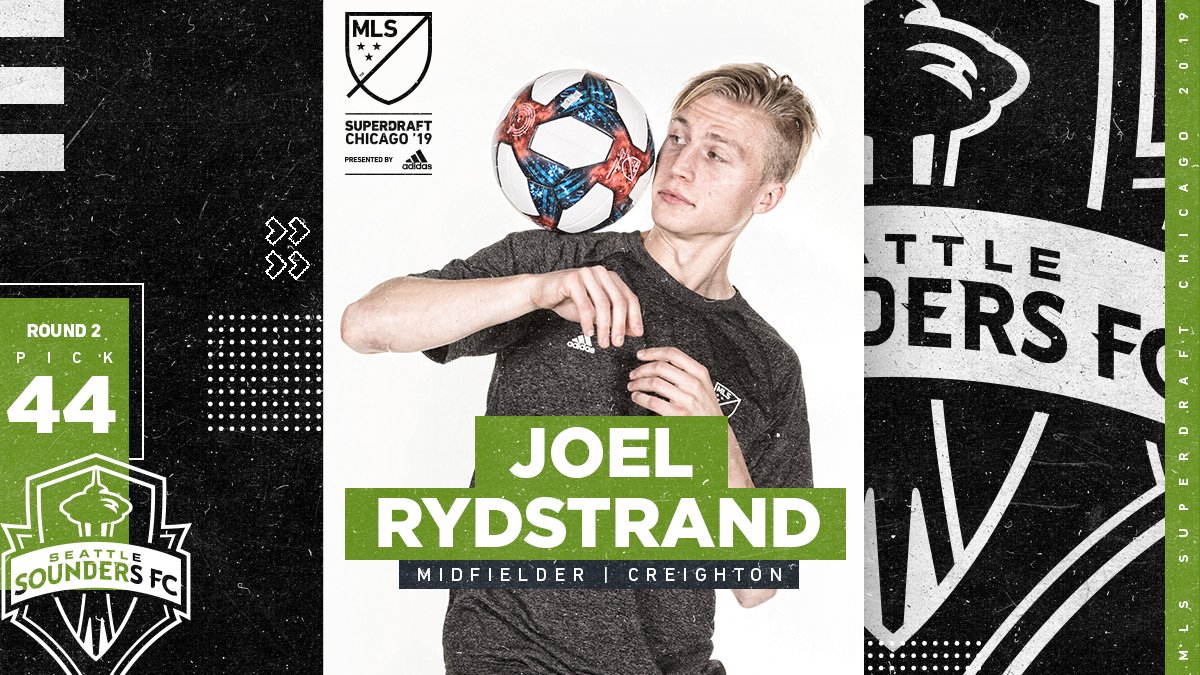
You are currently playing professionally in Spain right now. What was the rationale for leaving the US behind to head to Spain?
It was a combination of a lot of things. First and foremost it was a situation I was in where I didn’t see a future. I started to look out and ask people about possibilities in Europe. At the time this opportunity in Spain came up and I didn’t have much time to consider the offer. We took it, flew to Spain and have been here for a year and four months now.
What is the team and level like where you are in Spain?
The team is called CD San Roque de Lepe. We are located south of Seville and literally on the beach. I live on the beach and it is a beautiful place. We currently play in fourth division Spain which is surprisingly high level. It is a high level with a lot of very gifted individual players. It has been really good in Spain and I love it here.
You still have a year left on contract, but have you thought about what the make step may be or will you continue to play soccer?
I am playing it a little by ear but I want to continue. I am open to anything but I would like to stay in Spain for a while and get to know the country better and see other places. We will see what happens with this year and hopefully we get promoted.
You have been on a great journey and it is great to see how far you have come from not getting any game time in Sweden to now playing professionally in Spain.
I think it is important that remember that football can help you with so many more things than just getting you to the first tier and making a bunch of money. It has helped me get a degree, learn English and now learn Spanish and be fluent. It can take you places that I hardly see any other job being able to do. I think it is important for people out there to remember that and it can give you a lot of things to be grateful for.
This episode will certainly inspire a lot of people out there who are considering the US route to becoming a professional. Thank you so much, Joel.
Thank you for having me. Thank you very much.
If you aspire to become a professional soccer player like Joel, complete a FREE ASSESSMENT today!
